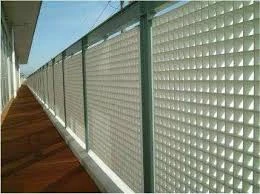
-
 Afrikaans
Afrikaans -
 Albanian
Albanian -
 Amharic
Amharic -
 Arabic
Arabic -
 Armenian
Armenian -
 Azerbaijani
Azerbaijani -
 Basque
Basque -
 Belarusian
Belarusian -
 Bengali
Bengali -
 Bosnian
Bosnian -
 Bulgarian
Bulgarian -
 Catalan
Catalan -
 Cebuano
Cebuano -
 China
China -
 China (Taiwan)
China (Taiwan) -
 Corsican
Corsican -
 Croatian
Croatian -
 Czech
Czech -
 Danish
Danish -
 Dutch
Dutch -
 English
English -
 Esperanto
Esperanto -
 Estonian
Estonian -
 Finnish
Finnish -
 French
French -
 Frisian
Frisian -
 Galician
Galician -
 Georgian
Georgian -
 German
German -
 Greek
Greek -
 Gujarati
Gujarati -
 Haitian Creole
Haitian Creole -
 hausa
hausa -
 hawaiian
hawaiian -
 Hebrew
Hebrew -
 Hindi
Hindi -
 Miao
Miao -
 Hungarian
Hungarian -
 Icelandic
Icelandic -
 igbo
igbo -
 Indonesian
Indonesian -
 irish
irish -
 Italian
Italian -
 Japanese
Japanese -
 Javanese
Javanese -
 Kannada
Kannada -
 kazakh
kazakh -
 Khmer
Khmer -
 Rwandese
Rwandese -
 Korean
Korean -
 Kurdish
Kurdish -
 Kyrgyz
Kyrgyz -
 Lao
Lao -
 Latin
Latin -
 Latvian
Latvian -
 Lithuanian
Lithuanian -
 Luxembourgish
Luxembourgish -
 Macedonian
Macedonian -
 Malgashi
Malgashi -
 Malay
Malay -
 Malayalam
Malayalam -
 Maltese
Maltese -
 Maori
Maori -
 Marathi
Marathi -
 Mongolian
Mongolian -
 Myanmar
Myanmar -
 Nepali
Nepali -
 Norwegian
Norwegian -
 Norwegian
Norwegian -
 Occitan
Occitan -
 Pashto
Pashto -
 Persian
Persian -
 Polish
Polish -
 Portuguese
Portuguese -
 Punjabi
Punjabi -
 Romanian
Romanian -
 Russian
Russian -
 Samoan
Samoan -
 Scottish Gaelic
Scottish Gaelic -
 Serbian
Serbian -
 Sesotho
Sesotho -
 Shona
Shona -
 Sindhi
Sindhi -
 Sinhala
Sinhala -
 Slovak
Slovak -
 Slovenian
Slovenian -
 Somali
Somali -
 Spanish
Spanish -
 Sundanese
Sundanese -
 Swahili
Swahili -
 Swedish
Swedish -
 Tagalog
Tagalog -
 Tajik
Tajik -
 Tamil
Tamil -
 Tatar
Tatar -
 Telugu
Telugu -
 Thai
Thai -
 Turkish
Turkish -
 Turkmen
Turkmen -
 Ukrainian
Ukrainian -
 Urdu
Urdu -
 Uighur
Uighur -
 Uzbek
Uzbek -
 Vietnamese
Vietnamese -
 Welsh
Welsh -
 Bantu
Bantu -
 Yiddish
Yiddish -
 Yoruba
Yoruba -
 Zulu
Zulu
Understanding the Functionality and Applications of FRP Valves in Modern Industries
Understanding FRP Valves Key Features and Applications
Fiberglass Reinforced Plastic (FRP) valves have gained significant attention across various industries due to their durability, lightweight characteristics, and excellent resistance to corrosion. Traditionally, valves were made from metals like stainless steel or cast iron; however, the rise of FRP technology has revolutionized how we approach industrial applications requiring fluid control.
What is FRP?
FRP is a composite material made from a polymer matrix reinforced with fibers, typically glass fibers. The integration of these materials results in a product that boasts enhanced strength and resilience, making it an ideal solution for environments where traditional materials may fail due to corrosion or wear.
Key Features of FRP Valves
1. Corrosion Resistance One of the most significant advantages of FRP valves is their resistance to corrosive substances. They can withstand harsh chemicals, making them suitable for industries such as chemical processing, water treatment, and pharmaceuticals, where conventional metal valves might corrode or degrade over time.
2. Lightweight Compared to metal valves, FRP valves are considerably lighter, which simplifies their installation and maintenance. The lightweight nature reduces the burden on supporting structures and enables easier handling by operators.
3. Durability FRP valves are designed to endure extreme environmental conditions, including high temperatures and pressures. Their robust construction ensures a long service life, minimizing the need for frequent replacements and reducing overall operating costs.
4. Customization FRP valves can be manufactured in various sizes, shapes, and configurations, allowing for customization to meet specific application needs. This flexibility is particularly beneficial for industries that require unique designs for efficient operability.
frp valve

5. Thermal Insulation The material properties of FRP provide inherent thermal insulation, which is crucial for applications where temperature fluctuations can affect system performance. This feature helps maintain product consistency while reducing energy consumption.
Applications of FRP Valves
FRP valves find diverse applications across multiple sectors, including
- Chemical Industry Due to their exceptional corrosion resistance, FRP valves are widely used in the chemical sector for controlling aggressive fluids. They are essential in handling acids, alkalis, and other hazardous materials.
- Water Treatment In municipal and industrial water treatment plants, FRP valves are utilized for their durability and resistance to chemical agents. They play a key role in regulating water flow and protecting against leaks and failures.
- Oil and Gas The oil and gas industry benefits from FRP valves for both upstream and downstream operations, especially in environments with harsh chemicals and where a lightweight solution is preferential.
- Power Generation In power plants, FRP valves are used to manage the flow of liquids and gases critical to various processes, including cooling and heating systems, due to their resilience under high temperatures and pressures.
Conclusion
In summary, FRP valves represent a significant advancement in valve technology, offering numerous advantages over traditional materials. Their resistance to corrosion, lightweight nature, durability, and ease of customization make them ideal for a wide range of applications across critical industries. As technology continues to evolve, FRP valves are expected to play an increasingly vital role in ensuring efficient and reliable fluid control in challenging environments. For businesses looking to enhance their operational efficiencies, investing in FRP valves may be a step toward achieving greater sustainability and longevity in their systems.









